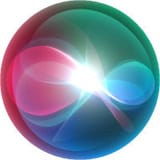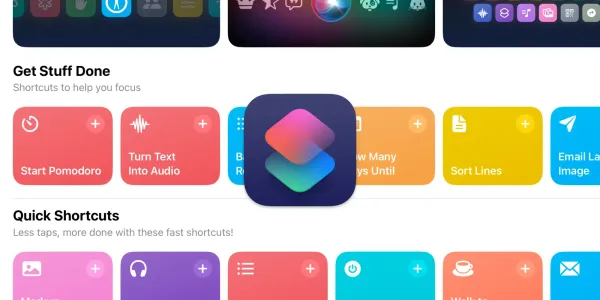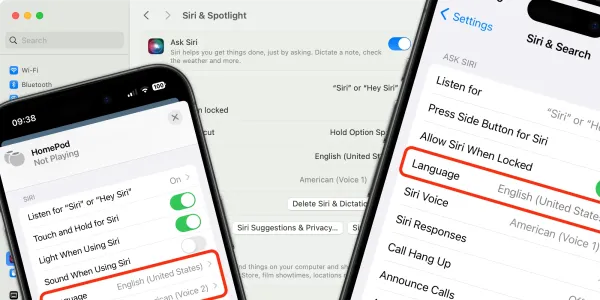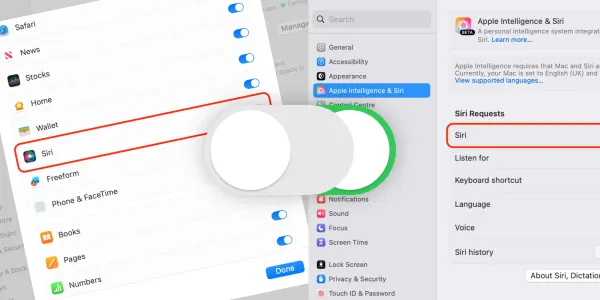What is Siri, and Who is Siri?
What is Siri? Ever wondered where Siri came from, who invented it, or what Siri stands for? If so, we’ve done the research and found you the answers.

Siri is used on millions of devices globally, including iPhones, Macs, Apple Watches, and HomePods. But have you ever wondered where Siri came from, who invented it, or even what it stands for? If so, we’ve done the research and found the answers for you.
What does Siri do?
Siri is a voice-controlled virtual assistant for Apple devices that uses spoken commands to answer questions, make recommendations, and perform tasks.
With continued use, Siri adapts to a person’s voice and patterns of behavior, meaning that results become more individualized over time.
At its most basic level, Siri can perform the following tasks:
- Provide the weather forecast for your current location.
- Perform dictation.
- Tell you what’s on the schedule in your calendar.
- Translate a conversation as it’s happening.
- Give you directions.
- Set reminders and alarms.
- Turn on your lights using Apple Home.
- Answer a question for you.
- Play a song or playlist from Apple Music.
- Make and answer phone calls and send messages.
Siri works with almost all built-in apps on your device. And it’s smart enough to figure out which apps to use to provide you with answers.
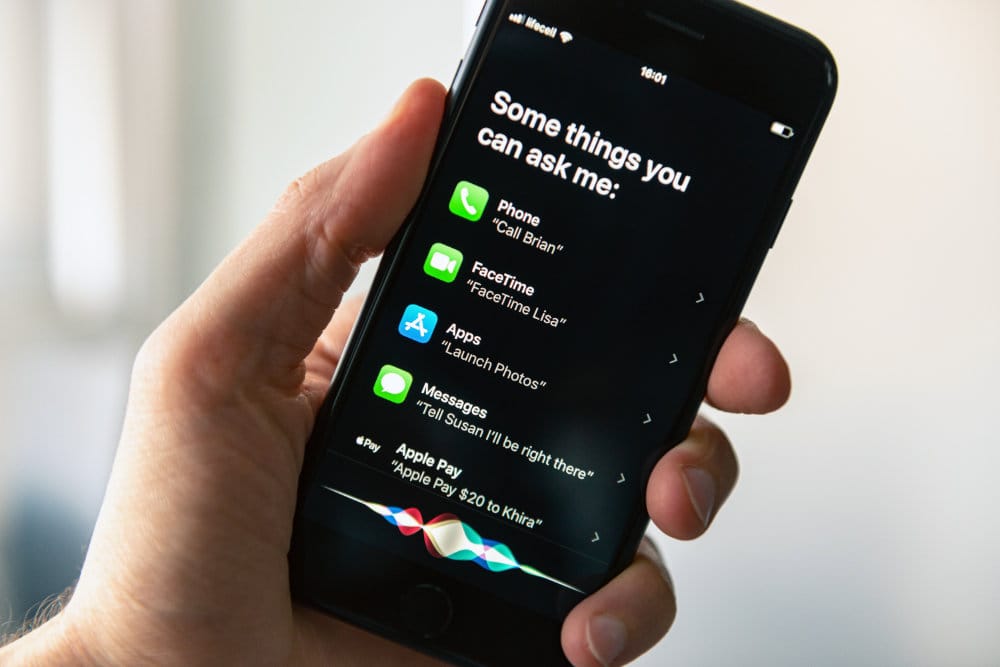
The history of Siri
When was Siri invented?
Siri was initially developed by the SRI International Artificial Intelligence Center. Its speech recognition engine was provided by Nuance Communications, using advanced machine learning technologies to function.
In 2007, SRI created a separate entity, Siri, Inc., to make their technology accessible to the public, releasing the first Siri app soon after.
What does Siri mean? Where did Siri’s name come from?
Siri stands for Speech Interpretation and Recognition Interface, but Dag Kittalaus, a Norwegian and one of the co-creators of Siri, was responsible for its name.
He intended to name his daughter Siri, as in Norwegian, Siri translates to “beautiful woman who guides you to victory.” He even secured the Siri.com domain. Then Kittalaus and his wife had a son instead, and the website was put on hold.
However, when the time came to introduce his innovative speech recognition technology, he brought back the Siri name and domain.
When was Siri first released?
Siri was first launched on iOS as a standalone app in February 2010. Quick to spot its potential, it was purchased by Apple in April of the same year. It was then released as an integrated part of iOS in October 2011.
Since then, Siri’s support has been expanded to cover most of Apple’s product range. Including the iPad, Apple Watch, Apple TV, HomePod, and macOS.
Who is Siri’s voice?
It’s impossible to track down every person (in every language) who has recorded their voice for Siri. But we found an interesting quote from Susan Bennett, the original American female Siri – as well as the voice of Delta Air Lines:
All of the original Siri voices worldwide came from a bank of digital voices that were recorded in 2005. I recorded four hours a day, five days a week for a month. The process is called concatenation, and the reason the original Siri was so iconic is because she was the first concatenated voice to actually sound human.
Apple didn’t inform any of the people behind the voices in advance; they were surprised to find out by chance:
Siri was introduced on 4 October 2011, and on that day a fellow voice talent emailed me and said: “Hey, we’re playing around with this new iPhone. Isn’t this you?” So, I went on the Apple site to hear the voice and recognized myself right away. I had a lot of different feelings about it. I was flattered that my voice had been chosen, but it was strange not to have known about it in advance.
Siri FAQ
Is there a Siri app?
No, there isn't a standalone Siri app that can be installed. It is integrated into Apple’s various operating systems.
Which Apple devices include Siri?
The iPhone, iPad, Mac, HomePod, Apple TV, and Apple Watch all support Siri.
How does Siri know my voice?
Using complex machine-learning capabilities, Siri recognizes patterns and characteristics in your voice.
The more you use Siri, the better it will understand you. As more people use Siri, and it’s exposed to more language variations, its overall recognition of dialects and accents will continue to improve, and Siri will work even better.
Siri can learn to distinguish between individuals in the same household. This means that when multiple people use the same HomePod for personal tasks like setting reminders or sending messages, Siri is capable of identifying the speaker.
How do I ask Siri something?
Activate Siri on your device by saying “Siri” or “Hey Siri”, or press and hold the home/side button if you’re using an iPhone.
What happens after I ask Siri a question or ask it to do something?
When you finish speaking, Siri displays the text of what you said and responds. If Siri needs further information to complete a request, it will ask you a question. For example, if you say, “Remind me to call my mom,” Siri will ask, “What time would you like me to remind you?”
Does Siri work with headphones?
Yes. When you use earphones or headphones, Siri will announce notifications. These include reading out text and email messages, directions, or workout progress. If you prefer not to be interrupted, these notifications can be turned off in settings.
AirPods and AirPods Pro can activate Siri by using voice commands or touch controls.

Do I have to say things a certain way to get Siri to respond?
No. You can speak to Siri as you would to a person – in a natural voice with a conversational tone. If you want to know what the weather will be like tomorrow, simply say, “What will the weather be like tomorrow?” Or “Does it look like rain tomorrow?” Or even, “Will I need an umbrella tomorrow?” No matter how you ask, Siri will tell you the forecast.
Does Siri take dictation?
Yes. Siri supports dictation in any app that has a keyboard. So, instead of typing, you can speak, and your words will be entered as text.
How does Siri know my location?
Siri knows your current location and other places like “home” and “work” using your device’s GPS, cellular signal, or Wi-Fi connection data.
Using this information, Siri can do things like remind you to perform a task when you leave or arrive at a specific location. So if you say, “Remind me to call my wife when I leave the office,” Siri does just that.
To stop Siri from using your location, go to Settings > Privacy & Security > Location Services and set Siri & Dictation to Never.
Information about your location is not tracked or stored outside your device.
How does Siri learn about my relationships?
Siri also helps you by learning about the key people in your life. For example, the first time you ask Siri to call a relative, such as your sister, it will ask you who your sister is. That information is stored in Contacts along with other relationship information like “mom,” “husband,” and “grandma.”
Is Siri accessible to blind and visually impaired users?
Yes. VoiceOver, the screen reader built into iOS, can speak any text displayed in responses from Siri. You can navigate through the responses and have each one read to you. This includes the days of a weather forecast, the body of an email, the details of an answer from Wolfram|Alpha, and more.
Where is Siri supported?
Siri is supported in many countries around the world. However, there is varying availability for some features.
Siri
Australia, Austria, Belgium (Dutch, French), Brazil, Canada (English, French), Chile, China mainland (Cantonese, Mandarin Chinese), Denmark, Finland (Finnish), France, Germany, Hong Kong (Cantonese), India (English), Ireland (English), Israel (Hebrew), Italy, Japan, Malaysia (Malay), Mexico, Netherlands, New Zealand, Norway, Russia, Saudi Arabia (Arabic), Singapore (English), South Africa (English), South Korea, Spain, Sweden, Switzerland (French, German, Italian), Taiwan (Mandarin Chinese), Thailand, Türkiye, United Arab Emirates (Arabic), United Kingdom, United States (English, Spanish).
Neural Text-to-Speech Voice (machine learning)
Australia, Brazil (Portuguese), Canada (English), China mainland (Mandarin Chinese), Denmark (Danish), Finland (Finnish), France, Germany, India (English), Ireland, Italy, Korea, Mexico, Norway (Norwegian), Russia, Spain, South Africa (English), Sweden (Swedish).
Translations
Arabic (Saudi Arabia, United Arab Emirates) to English.
English (Australia, Canada, India, Ireland, New Zealand, Singapore, South Africa, United Kingdom, United States) to Arabic, French, German, Italian, Japanese, Mandarin Chinese, Portuguese, Russian, Spanish.
English (United States) to Korean.
French (France) to English, German, Italian, Mandarin Chinese, Portuguese, Russian, and Spanish.
German (Germany) to English, French, Italian, Mandarin Chinese, Portuguese, Russian, Spanish.
Italian (Italy) to English, French, German, Mandarin Chinese, Portuguese, Russian, and Spanish.
Japanese (Japan) to English, Korean, Mandarin Chinese.
Korean (South Korea) to English, Japanese, Mandarin Chinese.
Mandarin Chinese (China mainland) to English, French, German, Italian, Japanese, Korean, and Spanish.
Mandarin Chinese (Taiwan) to English, Japanese.
Portuguese (Brazil) to English, French, German, Italian, Russian, Spanish.
Russian (Russia) to English, French, German, Italian, Portuguese, Spanish.
Spanish (Chile, Mexico, Spain, United States) to English, French, German, Italian, Mandarin Chinese, Portuguese, and Russian.
Siri Sports
Australia, Austria, Belgium (Dutch, French), Brazil, Canada (English, French), Chile (Spanish), China mainland (Cantonese, Mandarin Chinese), France, Germany, Hong Kong (Cantonese), India (English), Ireland (English), Italy, Japan, Mexico, Netherlands, New Zealand, Norway, Singapore (English), South Africa (English), South Korea, Spain, Sweden, Switzerland (French, German, Italian), Taiwan (Mandarin Chinese), United Kingdom, United States.
Movies
Australia, Austria, Belgium, Brazil, Canada (English, French), Chile, Denmark, France, Germany, Hong Kong, India, Ireland, Israel, Italy, Malaysia, Mexico, Netherlands, New Zealand, Norway, Saudi Arabia, Singapore, South Africa, South Korea, Spain, Sweden, Switzerland (French, German), Taiwan, United Kingdom, United Arab Emirates, United States (English, Spanish).
Movie Showtimes
Australia, Canada, France, Germany, Italy, Mexico, Spain, United Kingdom, United States.
TV
Australia, Austria, Belgium, Brazil, Canada (English, French), Chile, France, Germany, India, Ireland, Israel, Italy, Japan, Malaysia, Mexico, Netherlands, New Zealand, Norway, Saudi Arabia, Singapore, South Africa, Spain, Sweden, Switzerland (French, German), United Arab Emirates, United Kingdom, United States (English, Spanish).
Dictionary
Australia, Austria, Belgium (French), Canada (English, French), Chile (Spanish), China mainland (Mandarin Chinese), France, Germany, India (English), Ireland (English), Italy, Mexico, New Zealand, Singapore (English), South Africa (English), South Korea, Spain, Switzerland (French, German, Italian), Thailand, United Kingdom, United States.
On-Device Speech Processing and Offline Requests
English (Australia), English (Canada), English (India), English (United Kingdom), English (United States), Cantonese (Hong Kong), Mandarin Chinese (China mainland), French (France), German (Germany), Japanese, Spanish (Mexico), Spanish (Spain), Spanish (United States).

